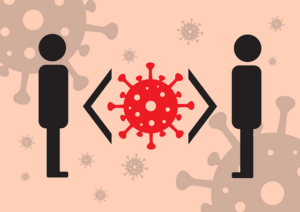News
Danish research: Social distancing works
This article is more than 5 years old.
Study also showed that COVID-19 mortality rate of 17 to 69-year-olds is 65 times lower than for those aged 70 or above

Keeping your distance can make a difference (photo: Pixabay)
Researchers from the Danish Blood Donor Study have proven that social distancing and other health authority measures make a difference in terms of not contracting the coronavirus.
Based on antibody tests and a behavioural survey of over 1,200 retired blood donors, the 1.2 percent who tested positive for antibodies were generally less inclined to follow health authority guidelines than those who didn’t have antibodies.
The researchers discovered that half of those who had tested positive for antibodies can remember showing symptoms of the virus.
READ ALSO: Many Danes refusing to follow government’s new COVID-19 guidelines
Over 70 = far more at risk
The study also showed that the mortality rate of 17 to 69-year-olds (0.083 percent) is about 65 times lower than for those aged 70 or above (5.4 percent).
The study has just been published in the scientific journal Clinical and Infectious Diseases and can be read here ( in English).
The news comes just days after a survey revealed that one in every seven Danes intend to not adhere to the government’s latest COVID-19 guidelines.










































